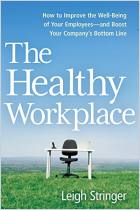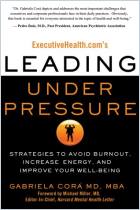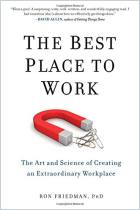
Book
Workplace Wellness that Works
10 Steps to Infuse Well-Being and Vitality into Any Organization
Recommendation
Wellness expert Laura Putnam shares spot-on, research-based facts about what motivates people to change. Putnam explains that people need to focus on their strengths, not their weaknesses, and need to identify a personal purpose for transforming unhealthy behaviors. She offers myriad tips for designing effective, innovative and engaging wellness programs. And, she tells insider anecdotes about health practices in different firms worldwide. getAbstract recommends her science-based ideas to anyone trying to lead others to change for the sake of their health.
Summary
About the Author
Laura Putnam is the founder and CEO of Motion Infusion, which helps organizations promote healthy behavioral change in their employees.
Learners who read this summary also read
Book
Book




















Comment on this summary or Начать обсуждение